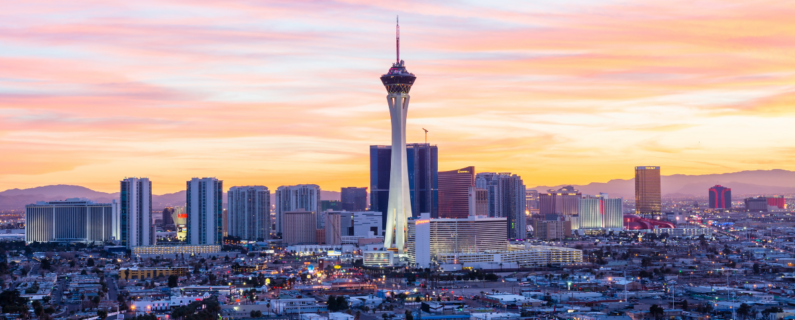
Las Vegas, often called “Sin City,” is a place of contrasts, offering a unique blend of vibrant nightlife, world-class entertainment, and stunning natural beauty. But like any city, it has its pros and cons. This blog aims to provide a comprehensive overview of the biggest benefits and drawbacks of living in Las Vegas.
Thinking about moving to Las Vegas? Visit Faranesh Real Estate and Property Management for the best assistance in Las Vegas and Henderson
Benefits of Living in Las Vegas
No State Income Tax
One of the most significant advantages of living in Las Vegas is the absence of state income tax. Nevada is one of the few states in the U.S. that does not impose this tax, which can lead to substantial savings for residents.
Entertainment Capital
Las Vegas boasts a reputation as the entertainment capital of the world. The famous Las Vegas Strip has countless shows, concerts, and events. Whether you enjoy live music, world-class shows, or gambling establishments, Las Vegas offers something for everyone.
Outdoor Recreational Opportunities
Despite its reputation for nightlife and casinos, Las Vegas also provides numerous outdoor recreational opportunities. The city is close to stunning natural landscapes such as Red Rock Canyon, Lake Mead, and Mount Charleston, which offer activities like hiking, rock climbing, and boating. Additionally, more national parks like Death Valley are within a short drive, providing even more outdoor adventures.
Favorable Weather
Las Vegas enjoys a desert climate with over 300 days of sunshine annually. This makes it ideal for outdoor activities year-round. While summers can be extremely hot, the rest of the year typically features mild and pleasant weather.
Economic Growth and Job Opportunities
The Las Vegas economy is robust and growing, particularly in the hospitality and gaming industries. This growth translates to numerous job opportunities in various sectors, including tourism, entertainment, and construction. Additionally, the presence of Nellis Air Force Base contributes to the local economy and job market.
Affordable Cost of Living
Compared to other major cities like San Francisco and San Diego, Las Vegas is an affordable place to live. Housing costs, in particular, are lower than the national average, making it an attractive destination for those seeking a big-city experience without the hefty price tag.
Transportation
Las Vegas offers decent public transportation, including a bus system that covers the entire city. Harry Reid International Airport also provides easy access to international destinations, making travel convenient.
Shopping and Dining
Las Vegas is home to numerous shopping centers and a diverse food scene. From high-end boutiques on Las Vegas Boulevard to eclectic dining options downtown, there’s something to satisfy every taste and budget.
Education
For families, the Clark County School District offers various educational options, and there are also several higher education institutions in the Las Vegas area, including the University of Nevada, Las Vegas (UNLV).
Family-Friendly Neighborhoods
Despite its reputation as an adult playground, Las Vegas has many family-friendly neighborhoods with parks, schools, and community centers. Areas like Summerlin and Henderson are particularly popular for families.
Proximity to Other Major Cities
Las Vegas is well-located for road trips to other cities and attractions. It’s within driving distance of Los Angeles, Salt Lake City, and Phoenix, providing additional options for weekend getaways.
Drawbacks of Living in Las Vegas
Extreme Summer Heat
One of the most notable drawbacks of living in Las Vegas is the extreme summer heat. Temperatures can soar above 110°F, making being outdoors during the day uncomfortable. This intense heat can also increase utility bills due to increased air conditioning use.
Transient City
Las Vegas is often considered a transient city, with many residents moving in and out frequently. This can make building long-term relationships and a sense of community challenging.
Traffic and Congestion
As a bustling city, Las Vegas can experience significant traffic congestion, especially around the Las Vegas Strip and during major events. This can be a hassle for commuters and those who prefer a quieter environment.
Public School Challenges
While there are good schools within the Clark County School District, it faces challenges such as overcrowding and budget constraints. Parents may need to consider private schooling or specific public school zones to ensure a quality education for their children.
Lack of Greenery
The desert climate means Las Vegas has less greenery than other cities. The landscape might be less appealing if you love lush parks and forests. However, the city compensates with its proximity to national parks and outdoor recreational spots.
Limited Public Transportation
Although Las Vegas has a bus system, it is less extensive or efficient than other major cities. Many residents find having a car essential for getting around the city and surrounding areas.
Gambling and Lifestyle Temptations
Living in Las Vegas means being surrounded by casinos and entertainment options, which can lead to lifestyle temptations. This environment may not suit everyone, particularly those who prefer a more subdued lifestyle.
Water Restrictions
Due to its desert location, Las Vegas faces water supply challenges. Residents are often subject to water use restrictions, affecting gardening and other water-intensive activities.
Neighborhoods in Las Vegas
- North Las Vegas: North Las Vegas is one of the areas experiencing significant growth. It offers more affordable housing options and is close to the Nellis Air Force Base. The area is becoming increasingly attractive for families and young professionals.
- Downtown Las Vegas: Downtown Las Vegas has seen a resurgence in recent years, with new developments, restaurants, and cultural attractions. It offers a different vibe compared to the Strip, with a focus on local arts and community events.
- Summerlin: Summerlin is a master-planned community known for its family-friendly atmosphere, parks, and schools. It is one of the most desirable places to live in the Las Vegas area, offering a suburban feel with easy access to the city’s amenities.
- Henderson: Henderson, located just southeast of Las Vegas, is another popular area for families. It boasts excellent schools, numerous parks, and a variety of shopping and dining options. It’s a quieter alternative to the hustle and bustle of the Strip.
- Lake Las Vegas: Lake Las Vegas offers a resort-like living experience with beautiful views, golf courses, and various outdoor activities. It’s an ideal location for those who enjoy a luxurious lifestyle and are close to water activities.
Is Living in Las Vegas Right for You?
For those considering moving to Las Vegas, it’s essential to weigh these factors carefully. The city’s vibrant atmosphere and challenges create a unique living experience that isn’t for everyone. However, for many, the benefits outweigh the drawbacks, making Las Vegas an attractive destination to call home.
If you’re considering moving and need assistance finding the perfect home, Faranesh Real Estate and Property Management are here to help. Contact us today to learn more about available properties and how we can assist with your transition to living in Las Vegas.
What are the downsides of living in Las Vegas?
Las Vegas has a limited job market, a poor education system, an underdeveloped public transportation infrastructure, and extreme summer heat, which can overwhelm some residents.
What are the pros and cons of living in Las Vegas?
Pros: world-class entertainment options, low taxes, affordable cost-of-living expenses, excellent connectivity through McCarran International Airport, family-friendly attractions, and an emerging sports hub.
Cons: limited job opportunities outside the tourism sector and poor education facilities.
What are the benefits of Las Vegas?
Las Vegas offers access to top-notch entertainment venues like T-Mobile Arena, an attractive tax environment for homeowners, reasonable housing costs compared to major cities such as San Francisco or San Diego, and great places for outdoor activities like golf courses or nearby national parks.
What are the pros and cons of living in Nevada?
Nevada offers advantages such as no state income tax, affordable housing prices, and diverse recreational activities, including skiing at Lake Tahoe resorts. However, some disadvantages include a lackluster public education system and water scarcity issues impacting daily life.



